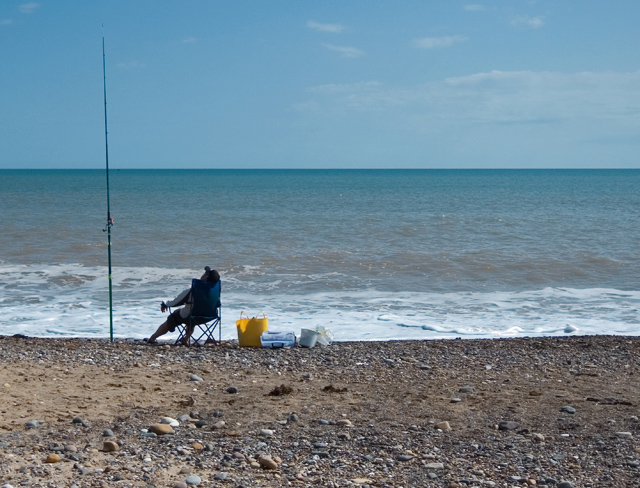Fishing shops were once at the heart of their local communities and served as a meeting place for anglers as well as somewhere to purchase equipment and bait. The shops had an important social role but with the growth of online shopping many have struggled to survive. Other have continued to thrive so what has made such a difference to the fortunes of these retailers?
Obviously some independent fishing shops have found it hard to compete in a market where consumers can search online for the best deals and then have their purchases delivered to their door. There is no doubt that the growth in online shopping favours the big guys who have more buying power and who can scale their operations effectively to reduce costs. The angler now has access to a vast array of products that, perhaps, their local retailer would not have the ability to stock.
Bad Weather and the Recession
The recession didn’t help matters as people started to restrict their expenditure and confined themselves to essentials. The winter of 2010 was a major blow as severe weather made fishing all but impossible. This was a terrible time for fishing shops and the last straw for many.
Competition
Commercial fishing sites have also impacted high street operators. Many of these destinations have on site shops selling tackle and bait and these have drawn more customers away from the traditional shops that once served the anglers. Retailers may also find themselves competing for a share of a smaller market in the future as fewer people are taking up the sport and are favouring games consoles and their computers instead. There is, however, still plenty to play for as fishing is still a £500 million industry in the UK.
Success Stories
The shops that have weathered the financial storm and which have continued to prosper are those that have embraced online shopping and who have geared themselves up for multi-channel retailing. Those who have invested in ecommerce websites and then promoted them heavily whilst maintaining a broad product range have continued to do well. EPoS (electronic point of sale) tills and software have streamlined their businesses and made it easier to manage multiple sales channels whilst holding thousands of products in stock. The new technology backed by high standards of customer service has enabled independent fishing shops to compete effectively and to serve an international client base rather than just their local anglers.
Diversification
Those who embraced the changing retail landscape and who adopted multi-channel retailing early have managed to survive but they still face increasing competition from the big players. The likes of Amazon certainly pose a threat. Independents can sell via Amazon but must do so in the face of competing listings for the same products and this drives prices and therefore margins down. Perhaps the answer is diversification. I am thinking here of retailers like Bass Pro in America and smaller UK based retailers who serve outdoor enthusiasts in general including fisherman, hunters, hikers and climbers. Such shops require a significant investment in premises and stock which is a big risk for a small retailer but it could just be the way forward.
It would be a shame if we lost our independent fishing shops as they are an important part of their local communities. They must be progressive to survive and perhaps ask the anglers to continue to support them. It is all too easy to source cheap prices online but anglers would miss their local shops if they were forced to close and so paying a bit more for tackle in their local shops might be a great investment for the long term.
Article by Sally Stacey

